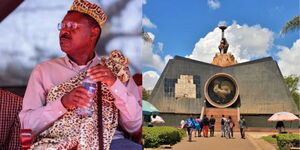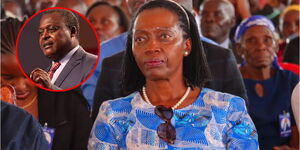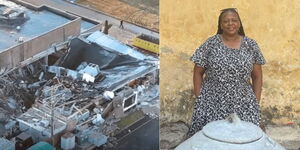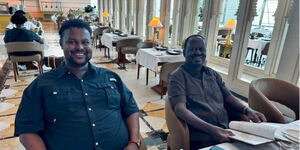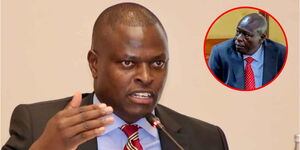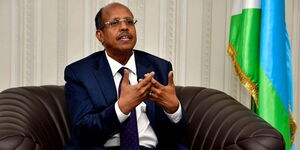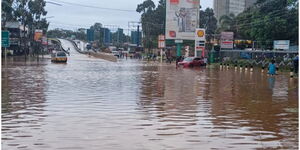Former Deputy President Rigathi Gachagua, through his Democracy for Citizens Party (DCP), broke his silence over the events of the June 25 protests, which left nearly a dozen people dead and several others injured.
In a statement released on the evening of Wednesday, June 25, Gachagua issued three demands: an immediate end to police brutality, the prompt restoration of all media operations, and justice for all families who lost their loved ones during the protests.
While condemning the shutdown of media operations, Gachagua’s DCP described the move as a violation of the Constitution, a breach of media freedom, and ‘State-sponsored censorship.’
The Communication Authority of Kenya (CA) had issued a directive to all TV and radio stations to stop the live coverage of the June 25 protests.
CA later acted upon its directive, storming the NTV and KTN transmission stations, deactivating the free-to-air signal, and taking them off air.
However, the High Court later issued conservatory orders preventing the CA from shutting down the stations, providing a reprieve for those affected.
At the same time, the DCP criticised law enforcement agencies over alleged acts of police brutality during the protests, with footage showing police officers in various locations firing live bullets and physically assaulting protesters.
Currently, the number of confirmed casualties is reported to be 11. These include a Form Three student, a man, and a child in Mukuru and Pipeline.
The Kenya Human Rights Commission (KHRC) confirmed the use of live bullets by police officers on protesters. The Commission condemned the police’s actions, terming them a violation of the Constitution.
While pledging their support for journalists and young protesters, the DCP urged the government to provide justice and compensation for families who lost their loved ones during this year’s and last year’s protests.
The June 25 protests were held in honour of Gen Zs who died during the 2024 demonstrations, with their families hoping to deliver official petitions to Parliament and the Office of the President in the Nairobi Central Business District.
However, this was not possible, as authorities cordoned off the two ordinarily restricted areas, ring-fencing Parliament with razor wire and placing barricades to block access.





